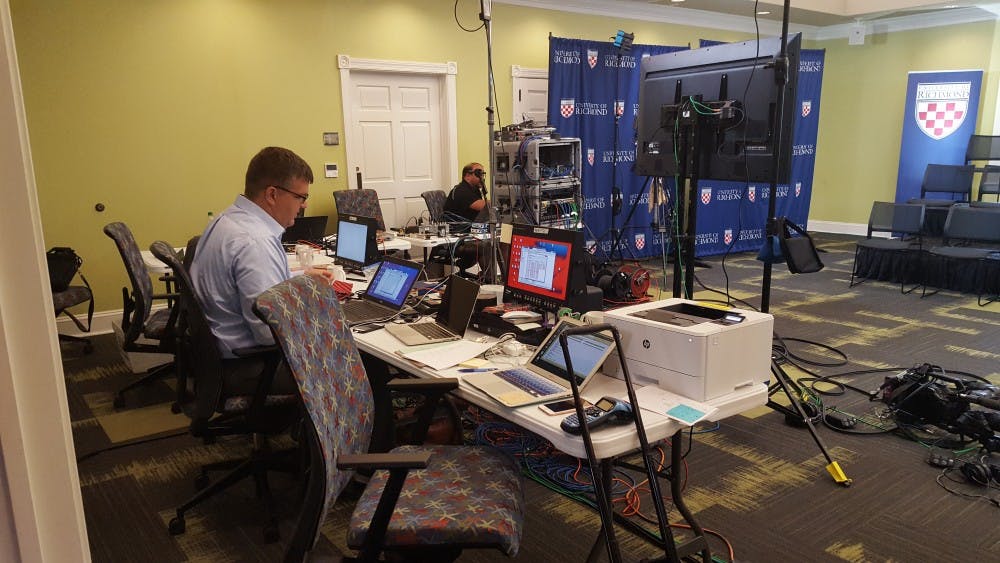University of Richmond hosted a CNN focus group of undecided voters during the vice presidential debate on Tuesday.
Final post-testing directly after the debate showed that the majority of the focus group strongly favored Tim Kaine, while those believing either Mike Pence was the winner or that there was no clear winner were few.
The focus group assembled in the Web to respond in real-time to the first and only debate between Gov. Mike Pence and Sen. Tim Kaine, who is also a Richmond faculty member.
The Richmond connection went beyond Kaine, as Adriana Ramirez and Eamon O’Keefe, a junior and a senior respectively, assisted on-site operations for CNN in collaboration with Cynthia Price, Richmond's director of media and public relations.
CNN contracted Southern Methodist University (SMU) and James Madison University (JMU) to conduct focus studies of undecided voters during each debate. SMU's Rita Kirk and JMU's Dan Schill spearheaded the research.
Kirk is a senior research professor and director of the Maguire Center for Ethics & Public Responsibility at SMU. She serves as SMU’s veteran research analyst for the presidential debates with 10 years of experience working with CNN.
Schill is an associate professor at JMU with research focused on communication, policy and mass media. Schill has worked with Kirk conducting focus groups and live analysis of debates for CNN since 2008.
The goal of this study is "to gain further understanding into the reactions and responses of the undecided based on what happens during the debate," Kirk said. But she acknowledged that the vice presidential debates don't usually sway voters.
The researchers wanted to study a swing state, so 28 undecided voters from Virginia were chosen to watch and respond to the debate held at Longwood University in Farmville, Virginia.
“Most people in the US don’t even know the names of the vice presidents, so this study will be interesting as their first exposure to the two VPs,” Kirk said. The study was less about polling and more about “the insight into what causes certain responses," she said.
CNN broadcast these responses live via dial meter during the debate.
The debate itself was met with various reactions from the group throughout, with a few bursts of laughter in between that were heard from the other rooms of the Web.
Enjoy what you're reading?
Signup for our newsletter
The main criticism from the participants was the repetitive nature in which the debate proceeded, with the constant resurgence of talk about taxes.
Contact reporter Arman Kyaw at arman.kyaw@richmond.edu
Support independent student media
You can make a tax-deductible donation by clicking the button below, which takes you to our secure PayPal account. The page is set up to receive contributions in whatever amount you designate. We look forward to using the money we raise to further our mission of providing honest and accurate information to students, faculty, staff, alumni and others in the general public.
Donate Now



